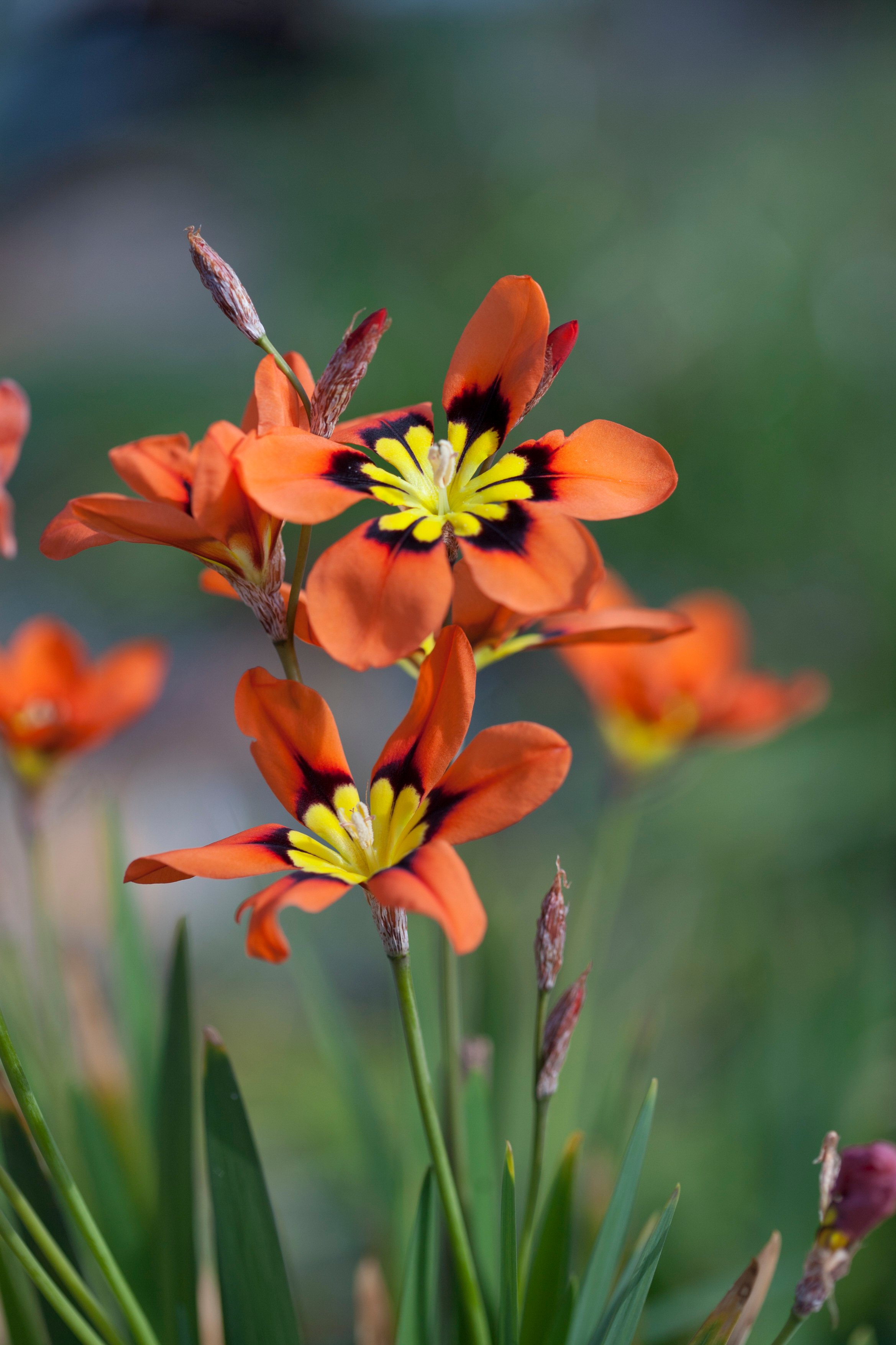Sparaxis tricolor
three-coloured harlequin flower
A cormous perennial with narrow, upright leaves to 30cm long. In spring and early summer it produces stems, to about 45cm, bearing small clusters of red, orange or purple, widely-funnel-shaped flowers with yellow centres surrounded by black or dark red marks

Buy this plant
Size
Ultimate height
0.1–0.5 metresTime to ultimate height
1–2 yearsUltimate spread
0–0.1 metreGrowing conditions
Moisture
Well–drainedColour & scent
| Stem | Flower | Foliage | Fruit | |
| Spring | Black Orange Purple Red Yellow | Green | ||
|---|---|---|---|---|
| Summer | Black Orange Purple Red Yellow | Green | ||
| Autumn | ||||
| Winter |
Position
- Full sun
Aspect
West–facing or South–facing
Exposure
Sheltered Hardiness
H2Botanical details
- Family
- Iridaceae
- Native to GB / Ireland
- No
- Foliage
- Deciduous
- Habit
- Columnar upright
- Genus
Sparaxis are cormous perennials forming a fan-shaped tuft of linear or narrowly lance-shaped leaves, with funnel-shaped flowers borne in loose spikes
- Name status
Correct
- Plant range
- South Africa (Cape)
How to grow
Cultivation
Grow under glass in good light but shaded from hot sun. In autumn, plant corms 20cm deep in peat-free, loam-based potting compost with added sand and leaf mould. Water sparingly when in growth and keep cool; dry off as flowers fade and keep completely dry when dormant
Propagation
Propagate by seed sown in containers in a cold frame as soon as ripe or remove offsets when dormant
Suggested planting locations and garden types
- Patio and container plants
- Mediterranean climate plants
Pruning
Remove spent flower stems and allow foliage to die down naturally
Pests
Generally problem free
Diseases
Generally problem free
Love gardening
Sign up to receive regular gardening tips, inspiration, offers and more
View our Privacy Policy
Get involved
The Royal Horticultural Society is the UK’s leading gardening charity. We aim to enrich everyone’s life through plants, and make the UK a greener and more beautiful place.